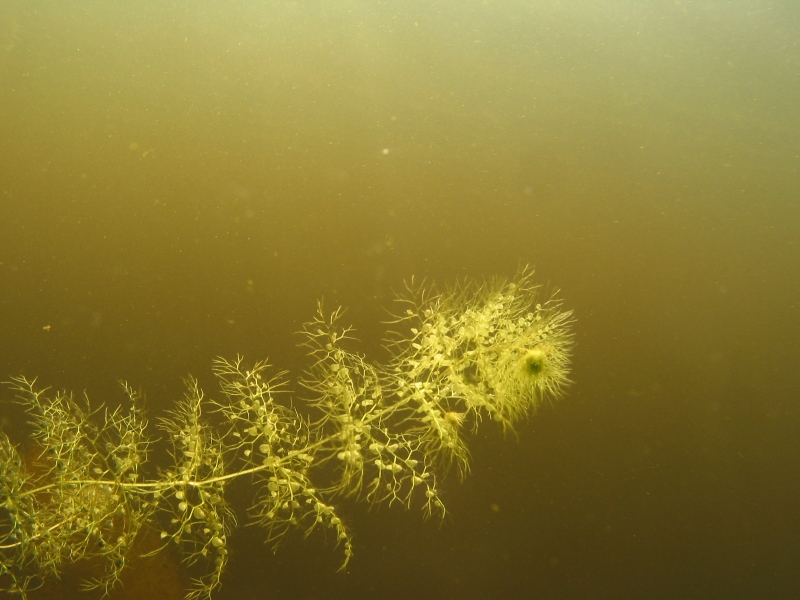The bladderwort Utricularia australis (Photo 1) is a submerged carnivorous plant. It is nationally critically endangered and has declined at an alarming rate in Northland dune lakes.
Take our quick Freshwater and Estuaries Update reader survey
It is now found in only two of the 23 water bodies where populations of this species have been found within the past 30 years, and most of the decline has happened in the last decade.
This species has an unusual ecology, as it is not attached to bottom sediments and usually needs low-nutrient, acidic conditions to survive. Although native to New Zealand, it flowers irregularly and no one has ever seen it produce any seed here. It is likely that U. australis is a sterile hybrid, with neither of its parent species in New Zealand.
The decline of U. australis is attributed to competition with another bladderwort, Utricularia gibba (Figure 1), which appears to have naturally colonised Northland water bodies in the last two decades. U. gibba’s spread and establishment also coincides with the deterioration of the region’s water quality due to nutrient enrichment.
Initial conservation actions should include:
- an updated census of lakes known to have recently supported U. australis
- assessment of its genetic diversity, and
- cultivation of representative populations of U. australis.
Go back to Freshwater Update 68



